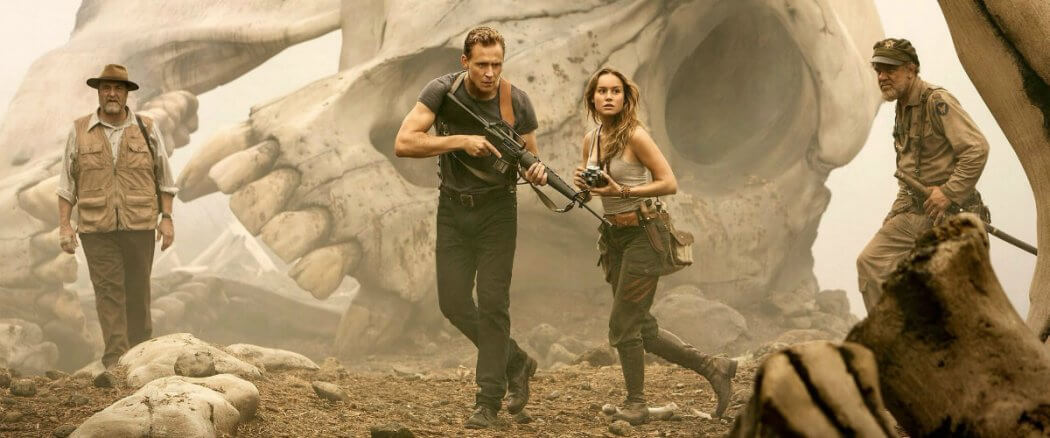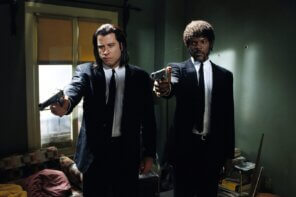A common complaint about cinema for the past few decades has been a lack of originality. “It’s always remakes! Why can’t anyone come up with a new idea,” says the hypothetical person in my head. I’m sure you’ve heard something similar frequently. And while this is an unfair claim for the most part — there are plenty of original movies if you’re willing to look — it does seem like our collective hunger for nostalgia has led to a glut of reboots over the past 20 to 30 years.
On one hand, this makes a lot of sense. Film hasn’t been around for much more than a century, and many of the classics, while timeless, aren’t as stimulating as our modern favorites. Nosferatu is a genre classic, but it doesn’t carry the technical weight of the 1979 Werner Herzog remake. The cameras are sharper, the audio is crisper — you get the idea.
On the other hand, it does seem like some films have been hit a little too hard. We’re not 20 years removed from the first Spider-Man film, yet we’ve already seen 3 different actors play the character in three distinct universes. There are a select few of these constantly rebooted stories; Nosferatu/Dracula would fall under them as well. And combined with the emergence of movie universes, we’re now getting to see these classic movies mingle on the big screen. A few years ago, we saw the resurrection of Godzilla. Now, in the same world, we’re treated to Kong: Skull Island, a film that falls in the same vein as its narrative predecessor. It’s a big, fun action movie with a lot of familiar faces. But after the credits roll, there still seems to be something missing.
Bigger and Better
One of the ways these rebooted films draw us in is the promise of “bigger and better.” “You haven’t seen Godzilla/King Kong/Dracula like this before,” the studio says. The explosions? They’ll be more destructive. The scenery? It’ll be more colorful. And those paint-by-numbers characters? They’ll be faces you love and can relate to. This last appeal is particularly enticing in the social media age when our celebrities have more knowable personalities.
 So does Kong: Skull Island pass the “bigger and better” test? Technically, yes. While I was more partial to the 2005 King Kong reboot’s island visuals, there’s no denying the splendor of this new offering. The rivers, lakes, and jungles are all incredibly lush and colorful, enough to make one feel like they’re on an exotic, if muggy, trip.
So does Kong: Skull Island pass the “bigger and better” test? Technically, yes. While I was more partial to the 2005 King Kong reboot’s island visuals, there’s no denying the splendor of this new offering. The rivers, lakes, and jungles are all incredibly lush and colorful, enough to make one feel like they’re on an exotic, if muggy, trip.
The explosions are certainly bigger, and they seem to carry a little more narrative weight than similar summer blockbusters. There’s an environmentalist angle baked into the narrative, one telling of men seeking to dominate the land rather than cultivate it. It’s thematic material dating back to the Creation Mandate, even if it doesn’t quite hold up while the good guys are blasting and shooting their way through the jungle.
And Kong himself? He carries a distinct look from previous versions, and we’re treated to closer-than-ever looks at his muscular, kingly visage. It may come at the expense of actual character — Peter Jackson’s King Kong felt like a friend by the end of the 3 hours — the cinematography does a marvelous job of casting Kong as the ruler of his domain.
Trekking Through the Jungle
As for the people we spend our time with on Skull Island, there’s no shortage of familiar faces. Brie Larson, John Goodman, Tom Hiddleston, John C. Reilly, Samuel L. Jackson… these are all people we love to love or love to hate, but barely ever do we find someone in the middle. Extra special props for casting Shea Whigham, one of my favorite character actors.
They all do commendable work as well. Brie Larson fits the mold as the war photographer/closet activist. Goodman and Jackson are two sides of the same violent coin, men who feel at home knowing they sit at the top of the pyramid. Hiddleston plays the dashing mercenary who “ain’t in this for your revolution.” Plot twist: turns out he has a heart of gold! Who knew!
 As I said, all of these people are commendable, especially considering the script they’re given. It’s little more than straight context or subtext, designed to keep the plot chugging along. But there’s nothing like watching Larson chew the scenery or hearing Jackson drop an f-bomb. In this case, their outside personalities are a service.
As I said, all of these people are commendable, especially considering the script they’re given. It’s little more than straight context or subtext, designed to keep the plot chugging along. But there’s nothing like watching Larson chew the scenery or hearing Jackson drop an f-bomb. In this case, their outside personalities are a service.
It doesn’t hurt that our heroes and villains help us get through a pretty thin story. While the writers would have you believe there’s a grander, more secretive goal at stake on Skull Island, the reality is we see it from a mile away. As soon as the helicopters break the storm, we know where this is headed. It’s the same Kong story we’ve always been told, only with a modified ending.
A Journey Worth Taking?
I know how this review sounds. Lukewarm praise peppered with major criticisms. It can come off as a bit lukewarm or tepid of a take. And I understand! If anything that’s the kind of film I want to reflect. And as I see it, there’s a positive and a negative to take away from that sort of film.
Positive: There aren’t nearly enough movies hitting theaters today like Kong: Skull Island. Yes, it may be a story that’s been told, but it’s still a story worth telling. Moral hypocrisy notwithstanding, the message of natural domination vs. cultivation is important. There’s no moral grandstanding about climate change or vegetarianism on Skull Island, but there are things to think about, namely how humans treat our fellow earth-dwellers. Does the Mandate allow for the mindless killing of animals or deforestation? Is there something to be said for avoiding scientific overreach for the sake of economic growth? Maybe I’m reading too much into it, but these all seem to have their stakes in Kong: Skull Island, and like any idea worth its salt, they’re up for discussion here. Instead of the latest robots-blowing-each-other-up choice or cars-and-faster-cars edition, the foundation of man vs. nature still rings true. And technically speaking, it’s quite a marvel.
Negative: Should we as audiences be content with “good enough?” I don’t want to nitpick, but it seems like film consumption has reached a point of stasis where the ceiling doesn’t have to be too high if the floor isn’t too low. Kong: Skull Island is by no means a bad movie, but it makes no qualms about being a transcendent one. And given the source material, I want to believe that’s a problem. “Whatever you do, do it for the glory of God,” seems like hyper spiritualizing… probably because it is.
But at what point do we make decisions of good rather than great, all for the sake of something being more accessible? As always, taste is subjective, people will walk away from films, albums, etc. with different thoughts. Is a headier film worth less than one with monsters and explosions? Is the 3 hour long King Kong with lesser actors not as good as one that’s an hour shorter with A-list stars? Truthfully, I can’t answer that.
All I know is I watched Kong: Skull Island with bright eyes and an engaged mind. But after two hours and change, I walked away without much to take home. There’s something to be celebrated about a film that can make the time fly by. The real key is determining its worth when you leave the theater.





